Publications
Vydáváme knihy rozhovorů s vědkyněmi a vědci, mapujeme zastoupení žen ve vědě prostřednictvím statistických analýz, publikujeme manuály i ryze odborné vědecké práce. Většina z nich je volně ke stažení.
Monitoring reports
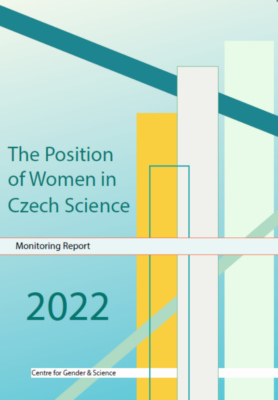
THE POSITION OF WOMEN IN CZECH SCIENCE
2022 Monitoring report
The report provides information on the representation of women and men across scientific disciplines, academic sectors and sectors of the economy, including the position of the Czech Republic in international comparisons. The publication aims to highlight one of the many manifestations of gender culture in Czech science. The values available to us illustrate the significant disproportions that persist in Czech science and research. In the long term, Czech research has been unable to give opportunities to qualified, highly educated women, and is thus unnecessarily missing out on potential that would take us further as a society.
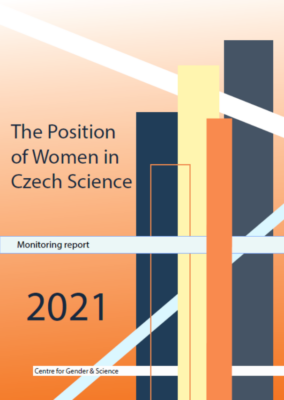
THE POSITION OF WOMEN IN CZECH SCIENCE
2021 Monitoring report
The aim of the publication is to analyse the state of women’s representation in science and research from the perspective of selected available indicators, both in their structural aspect and in terms of long-term temporal development. Due to frequently changing data collection methodologies or irregular collection of some indicators, only those indicators that are either comparable from a developmental perspective or that allow a relevant, albeit time-limited, perspective on the issue are used in the publication. In the second case, we point out such facts in the text of the publication itself.
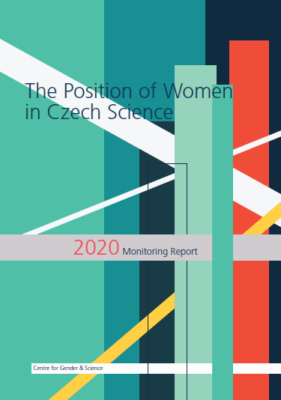
THE POSITION OF WOMEN IN CZECH SCIENCE
2020 Monitoring Report
In the publication, the Center for Gender and Science analyses the position of women in science and innovation in the Czech Republic. The report has been published annually since 2005. It contains data on the representation of women in science and research across disciplines and economic sectors. You will also get an overview of the share of women in senior positions in science and research and the gender pay gap in academia. There is also an international comparison of the Czech Republic with other EU countries.
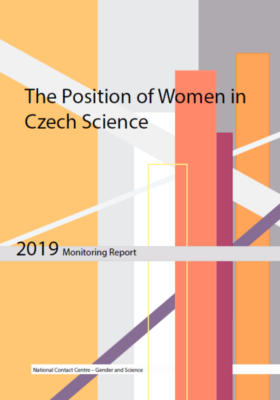
THE POSITION OF WOMEN IN CZECH SCIENCE
2019 Monitoring Report
The monitoring report of the project STRATIN+ brings the latest information about the position of women in the Czech academic area. This report provides information on the representation of men and women in the different areas of research and development, in academic positions, and in economic sectors. One part of the report is dedicated to the income and gender pay gap. In the report is also described gender make-up people in the leadership positions at Czech research institutions and the report also contains the comparison of the Czech Republic with other European countries.
Please see the Main Findings in English in the first few pages.
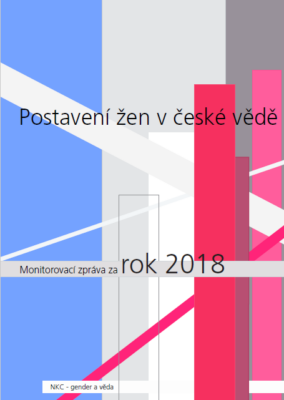
THE POSITION OF WOMEN IN CZECH SCIENCE
2018 Monitoring Report
The annual statistical overview about women in Czech science confirms continuation of the trend of stagnation of the share of women among researchers.
Please see the Main Findings in English in the first few pages.
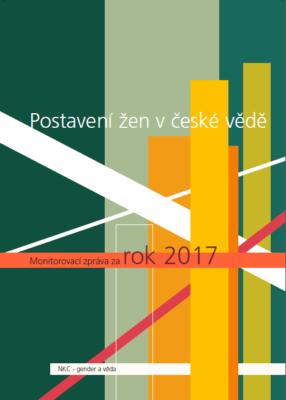
THE POSITION OF WOMEN IN CZECH SCIENCE
2017 Monitoring Report
The annual statistical overview on women in Czech science shows that there are almost no developments in recent 10 years. We can even see slightly negative tendencies: a decrease in the representation of women in technical and natural sciences.
Please see the Main Findings in English in the first few pages.
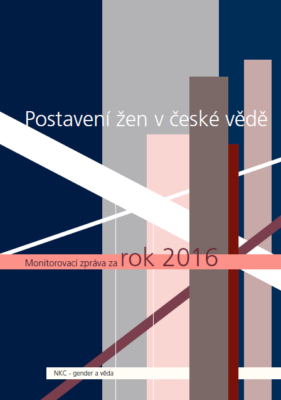
THE POSITION OF WOMEN IN CZECH SCIENCE
2016 Monitoring Report
In addition to standard data on researchers by field and sector of activity, on students and academics at universities, and the representation of women and men in decision-making positions in research, this report also includes data on women among researchers in European countries. The result of the comparison is not positive: the Czech Republic is among the worst in most of the monitored criteria.
Please see the Main Findings in English in the first few pages.
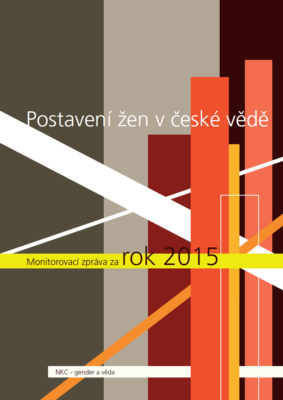
THE POSITION OF WOMEN IN CZECH SCIENCE
2015 Monitoring Report
The data presented in this publication map 1) the field of research and development (R&D), defined as creative work undertaken for the purpose of expanding current understanding of humanity, culture and society, gaining new knowledge or its application in practice (gathered by Czech Statistical Office), 2) information about people and activities that deal with education and training, i.e. academic work at post-secondary non-college education (gathered by Ministry of Education, Youth and Sports).
Please see the Main Findings in English in the first few pages.
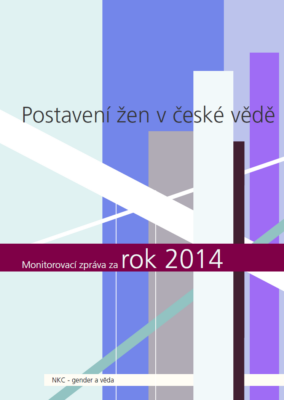
THE POSITION OF WOMEN IN CZECH SCIENCE
2014 Monitoring Report
The 2014 Monitoring Report does not show any significant improvements from previous monitoring reports.
Please see the Main Findings in English in the first few pages.
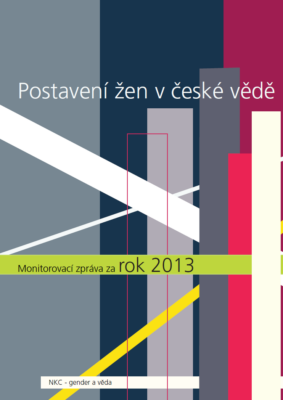
THE POSITION OF WOMEN IN CZECH SCIENCE
2013 Monitoring Report
The 2013 Monitoring Report shows again that the current situation is far from satisfactory. A number of many important data is not collected at all, or irregularly. The data that is available document that the increase in the number of women among students and graduates is not mirrored in the proportion of women among researchers. This occurs despite the fact that the total population of researchers has been growing in recent years.
Please see the Main Findings in English in the first few pages.
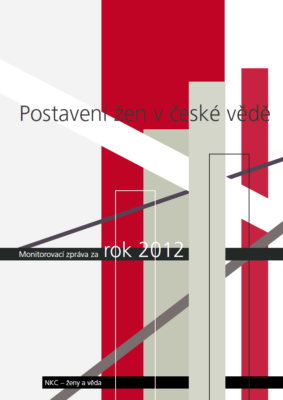
THE POSITION OF WOMEN IN CZECH SCIENCE
2012 Monitoring Report
The percentage of women among researchers in the Czech Republic is the lowest since 2001. In 2012 women constituted only 27.4 % of researchers in Czech science. In full time equivalent women make up only 24.7 % of Czech researchers. Both values are the lowest since 2001 when sex disaggregated started to be published.
Please see the Main Findings in English in the first few pages.
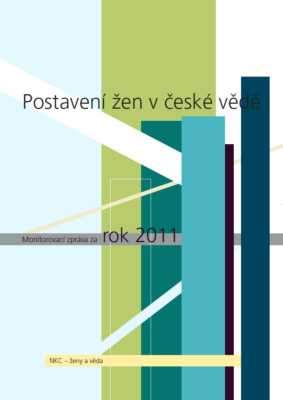
THE POSITION OF WOMEN IN CZECH SCIENCE
2011 Monitoring Report
Data refute the assumption that an increasing percentage of women among students will automatically lead to an increased percentage of women among researchers. The percentage of women at all levels of study has been growing. Yet, the percentage of women in the position of a researcher has not changed since 2001. Women participate in the decision-making processes in major research institutions and institutions responsible for science policy relatively marginally.
Please see the Main Findings in English in the first few pages.
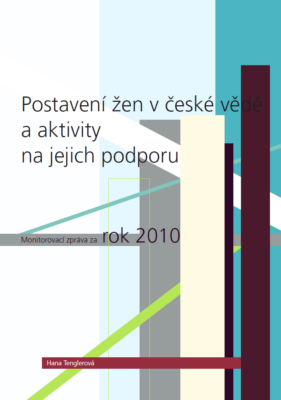
THE POSITION OF WOMEN IN CZECH SCIENCE
2010 Monitoring Report
Gender equality in science is not a political topic in the Czech Republic and issues related to the position of women are on the margins of policy interest. Data available and a number of qualitative research studies show that gender inequality is present in Czech science and that as a result of changes science and research are undergoing today, these inequalities are further reinforced and new ones established. In most statistical indicators the Czech Republic fares among the worst in the EU and the situation has not changed since 2001.
Please see the Main Findings in English in the first few pages.
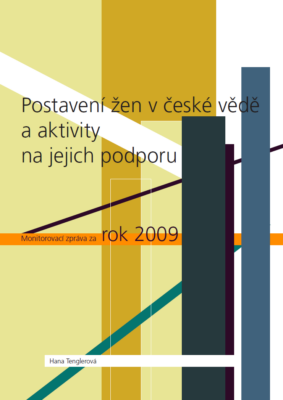
THE POSITION OF WOMEN IN CZECH SCIENCE
2009 Monitoring Report
In the Czech Republic a whole range of sex-disaggregated data describing the allocation of funding from public budgets is not at all or hardly available. The percentage of female researchers in the CR is very low. The country lags behind most of the EU member states and significantly behind the new member states where the percentage of women among researchers is sometimes twice as high as in the Czech Republic. Female researchers are far less likely to reach the highest qualifications levels and positions in decision-making bodies in research institutions and institutions responsible for science policy.
Please see the Main Findings in English in the first few pages.
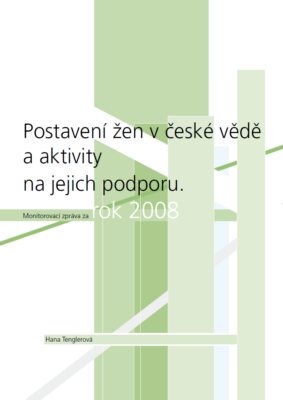
THE POSITION OF WOMEN IN CZECH SCIENCE
2008 Monitoring Report
The number of women working in research in the Czech Republic is low at 25%. In this respect the Czech Republic lags behind the EU average and compared to the new Member States. Moreover, since 2001 the ratio of male and female researchers has remained the same. Vertical and horizontal seggregation of Czech science is great. And how do institutions and individuals react to this situation? The position of women in science has been gradually become a topic which state, research and scientific institutions are slowly starting to pay some attention. However, gender mainstreaming of important strategic and conceptual documents is mininal or non-existent.
Please see the Main Findings in English in the first few pages.
Book of interviews
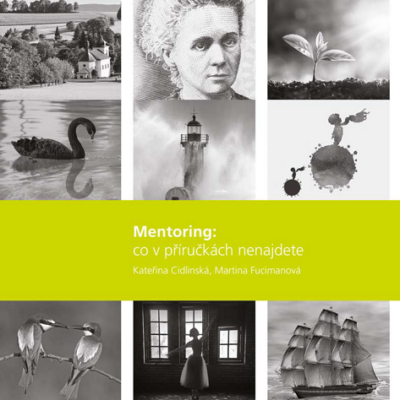
MENTORING: BEYOND MANUALS
2017
The publication, titled Mentoring: Beyond the Manuals (Mentoring: co v příručkách nenajdete) focuses on the impact of formal mentoring on the start of professional path of early career researchers at doctoral and postdoctoral stages. The book of interviews with alumni of the mentoring programme of the Center for Gender and Science of the Institute of Sociology of Checz Academy of Sciences gives an insight into the situation of early Czech career reseachers working and studying in various disciplines and various types of institutions.
The book introduces yourn people´s notion about scientific work and their careers. It also explores the perceived obstacles to their professional development which they sought to overcome in the framework of the mentoring programme. The book also offers possible future pointers for human resources policies at research institutions and provides inspiration for coordinators of mentoring programmes in Czech academia.
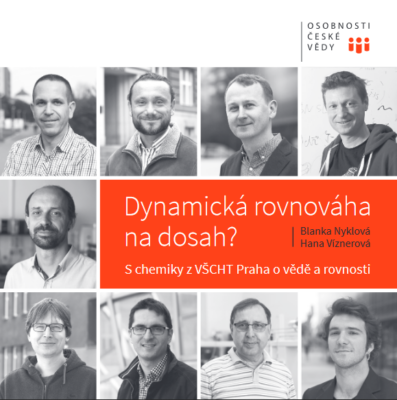
DYNAMIC EQUILIBRIUM WITHIN EASY REACH? INTERVIEWS WITH CHEMISTS UCT PRAGUE
2017
Why are women underrepresented in the senior ranks of the University of Chemistry and Technology Prague (UCT)? Why is there a sharp drop at post/doctoral level? Are study and working conditions for women researchers at UCT fair and sufficient? Is there equality in science for both women and men? Blanka Nyklova and Hana Viznerova of the Centre for Gender and Science consulted these issues with men chemists of UCT Prague. The outcome of their research is a book of 20 interviews titled Dynamic Equilibrium Within Easy Reach? Interviews with Chemists UCT Prague (Dynamická rovnováha na dosah? S chemiky z VŠCHT Praha o vědě a rovnosti).
The language of the publication is Czech.
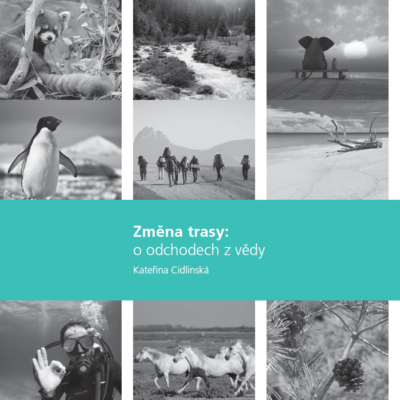
CHANGING COURSE: ON LEAVING ACADEMIC RESEARCH
2016
The publication, titled Changing Course: On Leaving Academic Research (Změna trasy: o odchodech z vědy) brings together fifteen interviews with early-career researchers who decided to leave academic research path during their doctorate or in the post-doc phase.
The publication is based on the qualitative part of the wider research project, the goal of which is to find out what kind of people have left Czech academic science in the past ten years as well as to analyze reasons why they decided to leave academic career, to ascertain what they do now and how they use knowledge acquired during their academic research career. The book describes working conditions for young scientists in the Czech Republic.
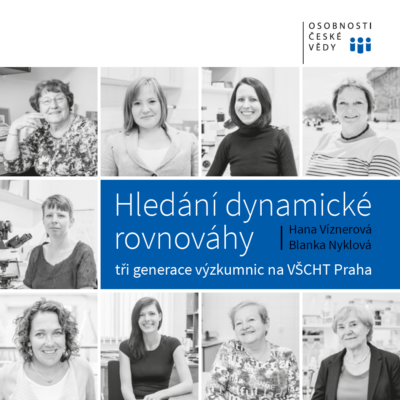
SEARCHING FOR DYNAMIC EQUILIBRIUM: THREE GENERATIONS OF WOMEN RESEARCHERS AT THE UNIVERSITY OF CHEMISTRY AND TECHNOLOGY PRAGUE
2016
The book Searching for a Dynamic Equilibrium: Three Generations of Women Researchers at the University of Chemistry and Technology Prague was launched on 17th February 2016 at the UTC Gallery in Prague. The publication, co-authored by Blanka Nyklová and Hana Víznerová, is a collection of twenty interviews with women scientists who do research and teach at the University of Chemistry and Technology Prague (UCT).
The interviews focus on issues related to the process of combining a highly demanding professional career in science with family life. It captures the lives of women academics at various points in their lives – young scientists at the outset of their careers through to those well-established at the peak of their careers. The interviews show how social, political and institutional circumstances have affected the professional and private lives of the interviewed scientists.
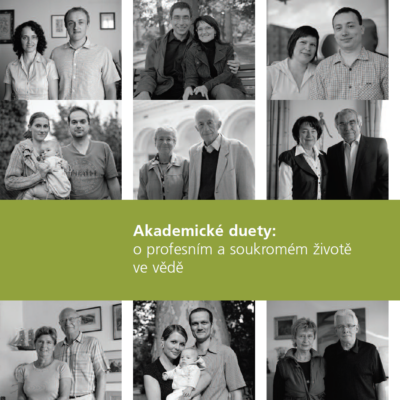
ACADEMIC DUETS: ON PROFESSIONAL AND PRIVATE LIVES IN SCIENCE
2010
The publication brings portraits of fifteen couples where both partners work in science, research or teach at a university. It completes a two-year project of Academic Couples carried out by the NKC between 2009 and 2010. Academic Couples focused on issues related to dual career partnerships in science, the process of combining two highly demanding professional careers in science, the distribution of roles between the partners and the combination of work and family lives.
It captures academics in various life phases – from young people and doctoral candidates at the beginning of their careers to well-established scientists at the peak of their creative powers to people who are gradually winding their research careers up. The theoretical introduction to the publication analyses some of these issues – problems related to geographical mobility, the bad design of Czech family policy which does not correspond well to the needs of parents working in demanding scientific professions or problems with stereotypes that people have about dual career partnerships in science. The interviews were conducted with both partners together, which makes them very dynamic, engaging and interesting.
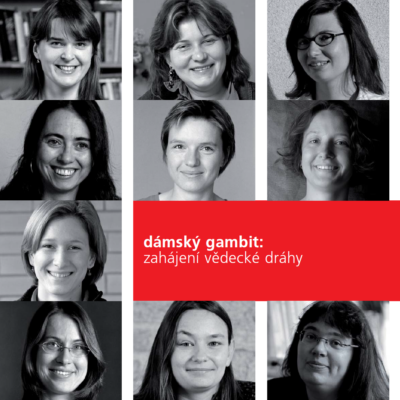
QUEEN’S GAMBIT: THE LAUNCH OF A RESEARCH CAREER
2005
After focusing on scientists who achieved scientific recognition we wanted to research the experiences and attitudes of another generation of women scientists – researchers at the beginning of their careers. We called them, and the whole project, Female Talents. We referenced talents, even though we know it is not enough just to have talent; a chance to nurture and develop it is equally important.
We engaged with early stage women researchers over the course of two years and asked them how they came into science, what worries them about science, how they feel as women-researchers and whether they have encountered any inequalities. It was interesting to hear their stories, which were as varied as the fields they work in, yet at the same time similar, when speaking about the satisfaction and fulfilment which scientific work brings them. One of the major topics was motherhood, an obstacle to their work but also an inspiration – a key moment which could end their scientific paths or open up new dimensions. Titled The Queen’s Gambit: The Launch of a Research Career, it is a vivid yet natural narration depicting the trials and tribulations of what life is like for early-stage women in science.
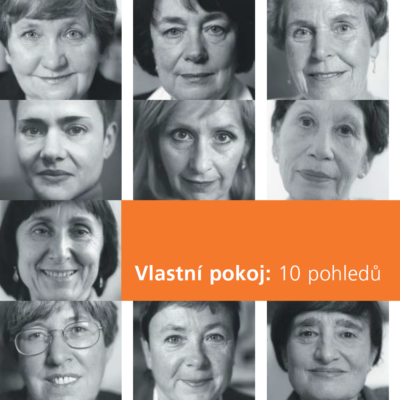
A ROOM OF ONE’S OWN: 10 VIEWS
2004
The publication presents interviews with successful Czech women scientists based on the Woman of the Month project (2001–2004). The key goal was to make visible those women scientists who have achieved outstanding results in their fields of research. It was important to map the contributions that women had made to Czech science and to present their experience. Also, the publication aimed at presenting early stage female researchers with what it means to do science as seen by those who have broken through the glass ceiling, how they experience science and what their life stories are.
The authors also expected to learn about the deformations of scientific research during the communist regime, what the scientists’ survival strategies were and what changes came after 1989 in the eyes of those who are now contributing to the formation of the research environment.
Studies and other publications
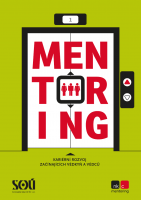
MENTORING: CAREER DEVELOPMENT OF EARLY CAREER RESEARCHERS
The Mentoring handbook provides useful tips for implementing a successful mentoring programme, examples of relevant foreign sources and also an outline of the Centre for Gender and Science’s mentoring programme.
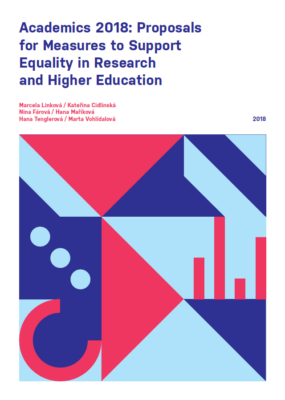
ACADEMICS 2018: PROPOSALS FOR MEASURES TO SUPPORT EQUALITY IN CZECH RESEARCH AND HIGHER EDUCATION
This document is based on an in-depth analysis of working conditions and barriers to women’s career progress in research and development. It is the first study into working conditions in the Czech research of such complexity.
This document is an outcome of the research project “Analysis of Barriers to and Support Strategy for Gender Equality in Science and Research” implemented in 2017 and 2018 by the Institute of Sociology of the Czech Academy of Sciences as part of the Operational Programme Employment (Reg. No. CZ.03.1.51/0.0/0.0/15_02 8/0003571).
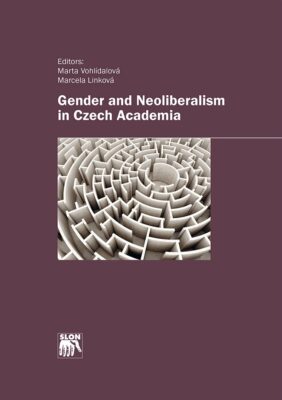
GENDER AND NEOLIBERALISM IN CZECH ACADEMIA
2018
This book analyses the consequences of the neoliberal-informed reforms for gender equality in Czech academia. It examines gender aspects in the construction of research excellence, gender blind research policy adopted in the Czech Republic, academic career paths before 1989 and today, mobility, wellbeing and job satisfaction among academics and the reasons and motivations for leaving academic careers. One of the goals of the book is to show the merits of studying local practices against the backdrop of large-scale geopolitical influences. While the book adds another piece to the global puzzle of changes in the organization of academic research and their impact on the lives of academics as well as on the quality and focus of the research conducted, its value lies in serious and critical attention to geopolitics. The book is an outcome of ongoing research of the Centre for Gender and Science, Czech Academy of Sciences, with contributions from other colleagues with similar research interests, including transformation of the higher education system in the Czech Republic and wellbeing of academics.
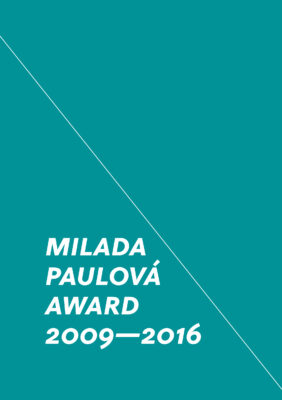
Milada Paulová Award
2016
Established by the Czech Ministry of Education, Youth and Sports in 2009, the Milada Paulová Award is presented annually in cooperation with the National Contact Centre for Gender and Science of the Institute of Sociology, the Czech Academy of Sciences, to prominent Czech women researchers for their lifelong contribution to a selected field of science. The award is named after the Czech historian Milada Paulová, the first woman researcher to be granted the right to lecture at university level, and the first woman in the country to be appointed as a university professor. This publication showcases the laureates and women researchers shortlisted for the Milada Paulová Award between the years 2009 and 2016.
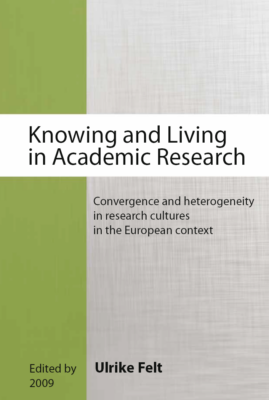
KNOWING AND LIVING IN ACADEMIC RESEARCH
2009
This is a PDF version of the final publication from the KNOWING project, Knowing and Living in Academic Research: Convergence and Heterogeneity in the European Context, edited by Ulrike Felt. The edited volume is published by the Institute of Sociology of the Academy of Sciences of the Czech Republic. Hard copies can be requested either from national teams or from the coordinator of the project.
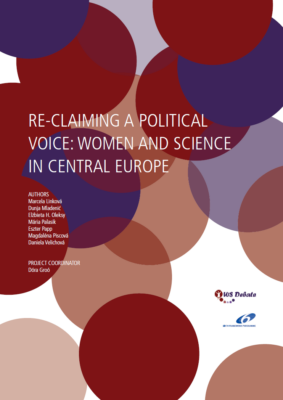
RECLAIMING A POLITICAL VOICE: WOMEN AND SCIENCE IN CENTRAL EUROPE
2007
This publication is one of the outputs of the WS Debate project (FP6) and is a contribution to the discussions about the position of women in Czech science. The question of equal opportunities for men and women is presented not only through the traditional prism of the lack of human resources and the importance of women for the economic development of Europe but locates the issue within wider historical and social-economic circumstances.
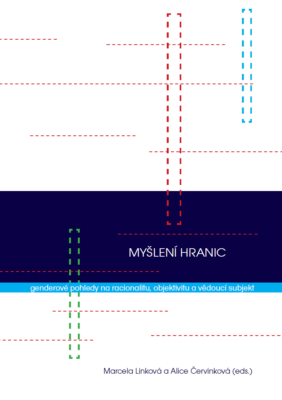
THINKING BORDERS: GENDER EXAMINATIONS OF RATIONALITY, OBJECTIVITY AND THE KNOWING SUBJECT
2006
This publication was inspired by papers presented at the international historical conference of Women Scholars and Institutions organized by the Research Centre for the History of Science and the Commission Women in Science of the International Union of History and Philosophy of Science.
The National Contact Centre for Women and Science at the Institute of Sociology of the Academy of Sciences of the Czech Republic chaired one of the conference sections called Gendered Knowledge: The Reshaping of ‘Normal’ Science. The publication is a result of a joint initiative of the panellists and organizers of the section.
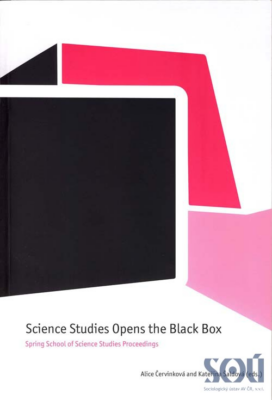
SCIENCE STUDIES OPENS THE BLACK BOX
2005
In 2005 the first Spring School of Science Studies took place and inspired the publication of this edited volume. A close focus was on challenging the ideas of knowledge construction and doing science, on feminist science studies, actors network theory, postcolonial techno-studies, and analyses of interactions between humans and technologies.
